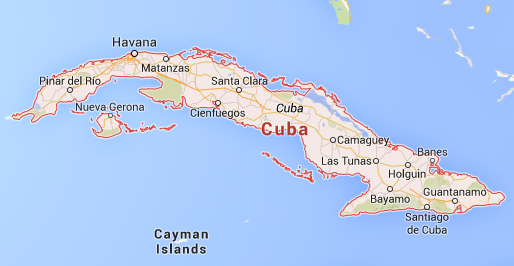Netflix In Cuba, A Play For The Future
Following a report last week that Netflix plans to expand its operations into other nations, Cuba appears to be near the front of the line. At issue, though, is the fact that most of the people inside of Cuba will be unable to pay for the service, if they can access it at all.
Inside of the Island nation, only about a quarter of the total population has access to Internet of any kind. To make matters worse, Internet speeds only reach 1.38 Mbps on average, which means that most of the population isn't even in a position to take advantage of the service.
A bigger issue arises when you consider the average income per citizen. Netflix plans to charge the same $7.99 per month rate in Cuba as it does inside of the United States. However, the average monthly income in Cuba is only the equivalent of $20 USD. Asking the Cuban people to pay 40 percent of their income is likely more than they can afford (and that's on top of what they have to pay for Internet service.)
To take advantage of this situation, several startups are offering Cubans access to the Internet at a rate of $4.50 per hour. But for someone who really wanted to try out the service, they could easily run through a full month's paycheck while watching one of the Lord of The Rings movies on Netflix.
Given how limited the potential customers are inside of Cuba, one really must wonder why Netflix would choose to expand there so quickly. It's nothing like the ideal market in Japan, where nearly the entire population has the potential to become a customer.
Netflix is, however, playing a game for the future. Although right now most Cubans won't be able to use Netflix, the company expects that conditions will improve in the future, and the service will become more affordable. By branching out to Cuba first, Netflix ensures that it becomes the dominant video streaming service in the future.
"We understand there are short-term limitations but hope that over time Cubans will be able to enjoy Netflix access," a company representative told Tom's Hardware. "We've said we plan to be global by end of 2016, and Cuba was the only country in the Western Hemisphere where we couldn't operate legally."
Get Tom's Hardware's best news and in-depth reviews, straight to your inbox.
In addition, according to the CEO of Netflix, Reed Hastings, Cuban media is also influential in its decision. "Cuba has great filmmakers and a robust arts culture and one day we hope to be able to bring their work to our global audience of over 57 million members," said Hastings.
If Netflix is successful in making a deal to bring original Cuban media to the world, it adds all the more value to the service for having unique content not available anywhere else.
Follow us @tomshardware, on Facebook and on Google+.
Seth Colaner previously served as News Director at Tom's Hardware. He covered technology news, focusing on keyboards, virtual reality, and wearables.
-
RamonPV There are no Start-ups in Cuba offering Internet service at this price which is in fact correct; ETECSA is the ONLY telecommunications company in Cuba, and this company is the only one that offers this $4.50/hour service in dedicated places similar to cybercafes. Also, the news should add that the small percentage of the population that have access to Internet can do it at their work places only; this is because the government DOES NOT allow Cubans to have internet at their homes except for a few people who mainly get access using dial-up. I was born in Cuba and lived there until I came to USA 8 years ago.Reply -
f-14 using putins argument the united states should take over cuba. tired of tollerating this nuclear security threat that should have officially been annexed 100 years agoReply -
ShinigamIan RamonPV just said it clearly. Just want to add that 1.38 Mbps average is only on main nodes. That bandwidth has to be shared with all the companies or cybecafes like entities the node supplies, so the final user gets roughly 16 to 24 kbps on good days. Also there is already an underground network distributing films and TVshows as soon as they release for very low prices by USB file copying (USBThumbs, external HDDs). All pirated of course. Hell, even the government broadcast pirated movies on public TV... Netflix?... What's the point??Reply -
RamonPV What's the point? The FUTURE. Also, it is a very good move because this way Cubans will understand that the limitations come from goverment embargo against the Cuban people, not from the USA embargo. Obama's moves brought some hope for Cubans because the embargo has been used by the goverment to justify the total disaster that the "revolution" has always been. Since around 3 years ago Cuba was connected to Venezuela and Jamaica thru a fiber cable and now the government is bringing excuses related to infrasture bla bla to ovoid providing internet for the Cuban people.Reply


